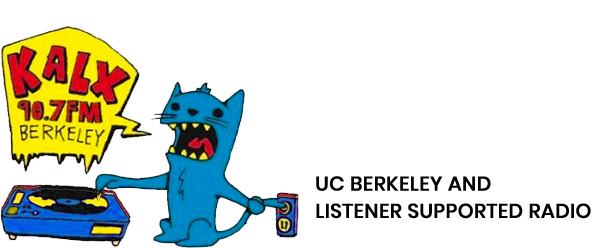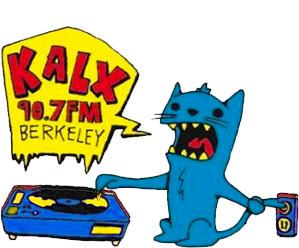Review and photos by Walker Price.
There’s not much to say about the Breeders that the entire alternative scene of the early 2000s hasn’t already. Formed from Kim Deal’s hasty and not-so-slightly acrimonious departure from Pixies, the Breeders surfaced fully formed from the ruin she left behind her. Raised in a Pixies-loving household (save for my mother, who infamously fell asleep in the midst of one of their sets and has yet to live it down), the Breeders have always been similarly crucial to my upbringing. When I was 13, I listened to “Divine Hammer” and “Drivin’ on 9” so much that every time I listened to Last Splash for the next eighteen months I would simply have to skip both tracks because I was sick of them. Then I remembered they’re two of the greatest songs ever written, and neither is even the best song on Last Splash. Rhode Island’s Belly is a band that occupies a similar niche in musically history – and my own; “Feed the Tree” was the first song I ever learned on bass. There exists even more of a throughline between the bands, though. While markedly distinct bands, the Breeders and Belly share some intangible quality that cannot but urge one to draw lines across them both. The reason behind this is certainly multifold, but the easiest answer is that Belly’s mastermind Tanya Donnelly (far more amicably than the aforementioned exodus), departed the Breeders after providing lead guitar for their first full-length, 1990’s Pod, and their first EP, 1992’s Safari. Belly emerged from the ever-machinating split skull of the Breeders, leaving a wound gauzed by Deal’s own sister, Kelly. But let’s be clear: just as Pavement is certainly not a Silver Jews side project, Belly is in no way an exercise in moonlighting by the Breeders.
Propulsive and atmospheric, the aura that surrounds Belly’s slice of alt-pop persists beyond the two-inch tape and throughout their live performance. Tanya Donelly is unassuming, wielding a mustard-yellow Gibson SG and allowing her extant words (and her bassist) do much of the talking, Donelly only deigns to speak a handful of times, giving each one a fair bit of heft. Belly has (clearly) reunited since their 1996 breakup but only one full length, 2018’s Dove, has made it out past the turn of the century. Their set spans this three-decade, gap-filled catalogue with ease, making it clear that, while obviously older, Belly’s approach to making music hasn’t really changed that much. The very qualities that make 1993’s Star and 96’s King stellar – Donelly’s incredible songwriting skill, the band’s unmistakable quality to make one instrument sound like six and vice versa, among others – are present on the songs the band plays from Dove. There is no disrupting force that makes an audience member sigh with disappointment at a 90s band playing a new song. It’s like they never left. The only real sign that we as an audience have (unfortunately) not been placed in a chilly autumn evening in 1995 Providence is bassist Gail Greenwood’s frequent self-effacing quips about how long the band’s been around (“I just got told I’ve still got it, which is just about the best compliment you can get at this age”). Greenwood also offers some more important context: the onset of this tour, Last Splash’s 30th anniversary, was the first time the two bands had shared a bill. The band ends with “Slow Dog,” a song upon which my father and I agree is yet another contender for the greatest song of all time. See through skin. The type of skin you can see through. I mean come on.
By the time the outline of the Breeders settles into five discernible shapes holding five discernible instruments, what also dawns upon the crowd is that Kim Deal has before her a pair of microphones. The purpose of the second one becomes clear after the band opens with “New Year” as she leans in to bark a distorted and facetious quadruplet of “checks’”– a harbinger of the iconic “Cannonball” and an implicit confirmation that we are, in fact, about to bear witness to the entirety of Last Splash. Throughout the album’s live runtime, one cannot help but be struck by how well these songs, and their progenitors, have aged, and the impact playing songs for thirty years has on a band.
The album weaves through the intricacies of radio hits and, in Deal’s own words, ‘the weird ones.’ Trading blows between foundational alternative rock and quavering bombast – often contained in a single track. The Breeders have always winded down an untraceable road, playing heavily into the conventions of their prescribed genre even while shirking them, or even turning them directly on their heads. The ambience present on Last Splash, both live and recorded, is not treated as an afterthought, nor a gimmick to shroud the songs in intrigue, but rather its own element. Songs like “Roi,” its reprise, and ‘Flipside’ make space for Deal’s vocals to act as a secondary element at best, both emphasizing the gravity of the few sung words and allowing the instrumentals to amble without the pressure of an impending solo. You can hear, as Kim Deal explains from stage exactly what it is that you’re hearing, the recorded running of her sister’s sewing machine, brought to San Francisco for use in spare time during Last Splash’s recording process. Deal cedes vocal duties once, to her sister, for what may be the album’s best song, “I Just Want to Get Along.” Then comes arguably the most off-kilter contender for that same title, ‘Mad Lucas,’ whose use of vibrato once again proves valuable that second microphone. The Deal sisters, bearing fraternal Stratocasters, shoot back and forth at each other into microphones across the stage like Abbott and Costello for gay people and their parents alike until right before the album comes to a close. Then we are told that the album is going to end, the band is going to take a short break, and then they’re going to play some more songs. You can hear screams erupt from the crowd (specifically my position in the crowd) as, after this break, Deal informs the uninformed that she did, in fact, “use to play in a band called the Pixies” before assuming bass duties for the first and last time in the evening to play her departure’s catalyzing song “Gigantic.” It was, in fact, gigantic for me, having seen Pixies (sans Deal), once before and bemoaning the song’s absence in their setlist.
It is later into the lengthy second portion of the Breeder’s time onstage that yet another return to a former band was brought about as Donelly is ushered back to once again supplement the Breeders. While, as made clear by the existence of this touring party, there appears no bad blood between the two, Deal seems to be, for the first time that evening, performing. She makes a concerted effort to make it to the mic to greet Donelly, which she does again to bid her farewell, facing the crowd rather than her purported interlocutor. The chemistry is undeniable once the music starts, launching into a Beatles cover before giving way to “When I Was a Painter,” one of Doe’s standouts and an urgent reminder that Donelly did, in fact, use to play in a band called the Breeders.


